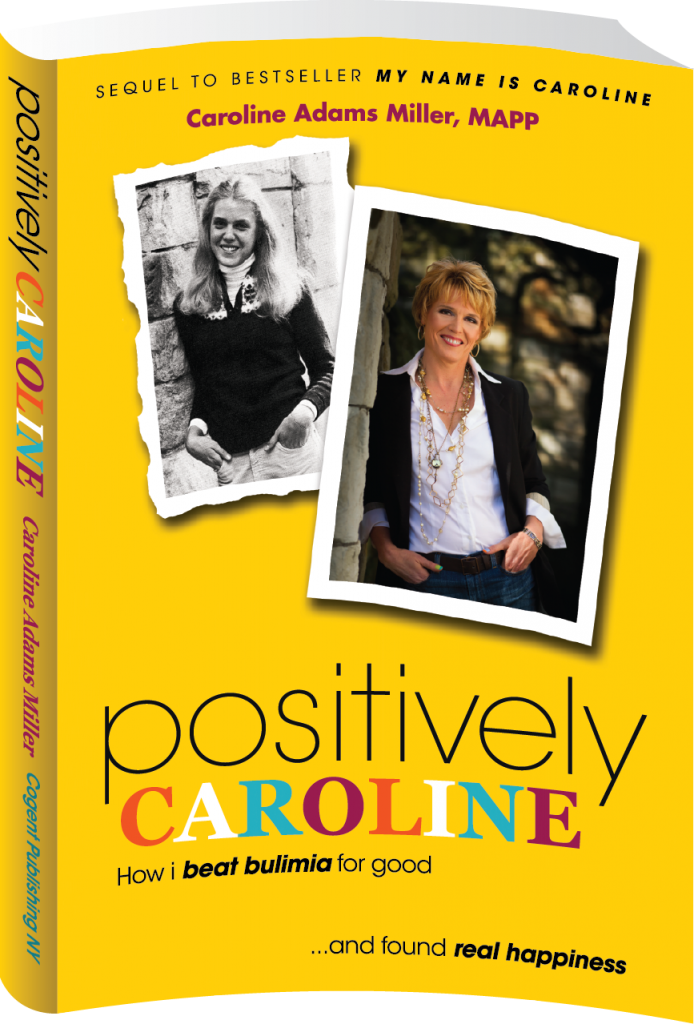
One of the first books of its kind to tackle the subject of how eating disorder survivors can and do create lives of joy and health that persist past the early years of recovery. Some media reports have led people to believe that there is an “addictive personality” that careens from addiction to addiction without ever experiencing lasting wellness, but Caroline’s story is a demonstration that many people can, and do, put food into its proper perspective and then go on to handle other life challenges without sliding backwards into food abuse or turning to other addictive substances or behaviors. Positively Caroline is the sequel to the bestselling My Name is Caroline (Doubleday 1988), which was the first major autobiography to cover recovery from bulimia, and which continues to sell well today.
This book covers many of the issues that women struggle with, regardless of whether or not they are recovering from an eating disorder, including:
Since the book [My Name is Caroline] ends when my mother was still in her twenties, the question “is long-term recovery possible for women with bulimia?” remains unanswered.
Positively Caroline is that answer. Like its predecessor, this book pulls you absolutely into the mind of Caroline as she deals with her disease in the years after My Name is Caroline ends. She becomes even more relatable as she experiences the joys of motherhood, the perils of bankruptcy, the stress of marriage and the dilemma of the work-home balance—all while maintaining her recovery. It is a tremendous story of triumph in the face of personal adversity, but manages to leave this impression without being self-congratulatory. In fact, Caroline is almost uniquely self-aware and consistently willing to work on herself.
Maybe I am a bit biased. Certainly, I love my mother and believe her to be an incredible person. But I love Caroline the character in a way that any reader can, and have learned from her experiences through her writing and self-reflection.
Positively Caroline is, broadly, a book about dealing with life. It tackles this ambitious task through the specific and personal lens of recovery from bulimia, but its message is universal: know yourself, improve yourself, and love yourself.